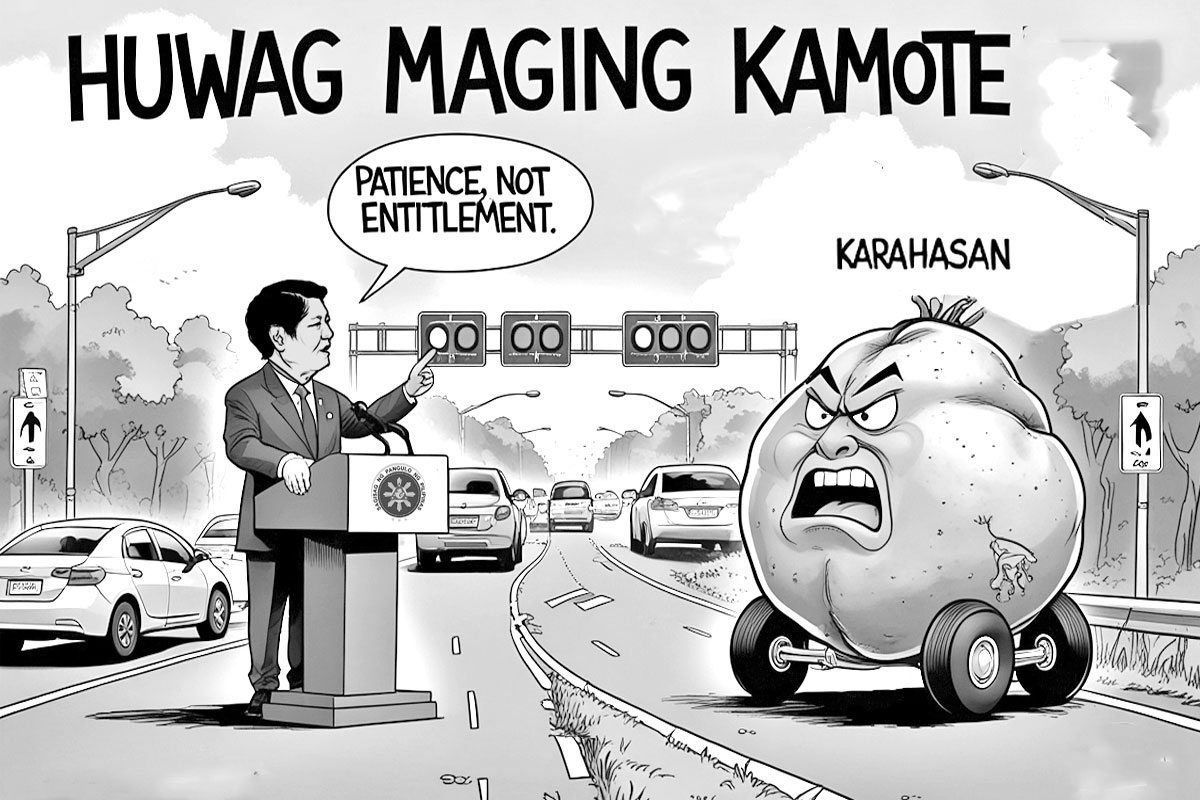
Wanted: Railway professionals
 LOOKING for a job? Try becoming a railway professional.
LOOKING for a job? Try becoming a railway professional.
Other industries are already tight but prospects in the train sector are very promising as the country shifts to railway transport to bring more commuters to their destinations faster, safer and more conveniently.
President Ferdinand Marcos Jr. is prioritizing government drive to expand the Philippine railway system. In his State of the Nation Address (SONA) in July this year, the President bared new railway projects with a total length of over 1,000 kilometers (km).
Marcos said the government is expecting to generate thousands of jobs once these projects are built and become operational.
A number of these projects are in Metro Manila to further boost the transport services provided by existing railway networks, buses, and jeepneys.
By the way, the jeepneys are having their own transformation under the upgrade program of the state for the ‘jurassic’ public utility vehicles.
Honestly, it’s time for the ‘King of the Road’ to conform to the current needs of the commuting public. Hardworking Filipinos don’t deserve the service of the decaying PUVs.
On a positive note, the latest jeepney strike against the upgrade program failed to gather support –proof that Filipinos want change.
At any rate, railroad professionals in general are those that ensure that passenger and trains run on time and travel safely. Some of them drive trains while others coordinate the activities of the trains. Others operate signals and switches in the rail yard.
To be specific, jobs in the rail industry could include railroad conductors and yardmasters, locomotive engineers, railroad brake, signal, and switch operators and locomotive firers, rail yard engineers, minor operators, and hostlers.
If one takes advance training courses, he could move up to the areas of Safety-Critical, Power and Electrical Works, Signaling and Communications, P-Way (railway track) and Track Works and Project/Site Management .
Rewards could also be more satisfying in a railway job if the company is managed by the private sector such as big companies like conglomerate San Miguel Corporation (SMC).
SMC is currently building the Metro Rail Transit – 7 project. It will manage and operate the rail system once operational.
Interestingly, some 74 railway professionals under the cadetship program of SMC for MRT-7 recently completed their mandatory training under the Philippine Railways Institute (PRI).
The training is a vital step towards ensuring that the soon-to-be-operational mass transit system provides a seamless and enhanced commuting experience for countless Filipinos.
The Fundamental Training Course (FTC), which began in July, was structured to provide the cadets with specialized skills and expertise. This rigorous preparation aims to meet the high standards required to handle the sophisticated operations of the MRT-7, set to revolutionize urban transit in the country.
In July this year, SMC separately sent 40 cadets to Seoul to train under KORAIL, South Korea’s leading railway operator and the conglomerate’s technical partner. They completed their training in September.
SMC President and CEO Ramon S. Ang congratulated the cadets for completing the course under the guidance of PRI experts during the commencement exercise held at the SMC head office complex.
“The MRT-7 project is not just about infrastructure, it’s also about people. And your duty is not just to operate a mass transit system, but to serve Filipinos daily, embodying the San Miguel culture of malasakit,” Ang said.
“That is why your training is among our top priorities. We always have to be at the top of our game, because what we do will make a big difference in the lives of so many Filipinos,” he added.
Speaking on behalf of Transportation Secretary Jaime Bautista, Undersecretary Paul Yebra hailed the graduates for proving their worth as railway professionals, who are now certified to “safely operate these multimillion-peso” facility and equipment.
“It is our goal that the graduates of the PRI FTC will put their skills and knowledge to use and help the government provide comfortable, accessible, safe, sustainable and efficient rail travel experience,” Yebra said.
The graduates received their certificates from Yebra and Undersecretary Anneli Lontoc, executive director of the PRI, who likewise extended her commendation to the trainees.
“Today you stand on the cusp of a remarkable journey in the realm of railways, a sector that is rapidly evolving and expanding. You have shown unwavering determination to acquire the competencies required to operate and maintain our railway system,” Lontoc said.
Of the 74 cadets who completed the FTC Cycle 7, 27 of them graduated from the railway engineering program of state-run Polytechnic University of the Philippines (PUP).
One of the cadets who graduated from PUP’s railway engineering program is Chrystelle Mhae Ibarreta, who topped FTC Cycle 7. Reflecting on her journey as a Filipino railway professional, Ibarreta said she felt her choice to pursue railway engineering no longer seemed to be an accident.
“At first, I chose the program because it had many slots available, and I was not able to join the program I wanted. But looking back, I found my purpose, and the cadetship program always reminded me that what I experienced was all worth it,” she said.
She expressed gratitude to Ang for opening the cadetship program to fresh graduates because it gave them an opportunity to become a railway professional just like what they studied in college.
**
For comments, please call or text 09569012811 or email [email protected]





















